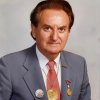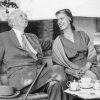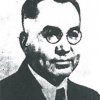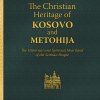Steve Popovich - the man who discovered Meat Loaf
The record labels they approached literally laughed at them – by 1976/77 people were dancing to disco and some were pogoing to punk rock.
Conventional wisdom said there was no market for a 350 lb guy singing epic eight-minute long Wagnerian-style rock anthems.
It took an unconventional, determined, dedicated Cleveland record executive, Steve Popovich to go with his instinct he had honed over 15 years to prove them all wrong and put Meat Loaf on the Musical Map of the World.
Arista records had laughed so hard at their audition, the executives even insulted composer Jim Steinman saying he should go out and buy real rock ‘n’ roll records so he could learn to write proper songs.














